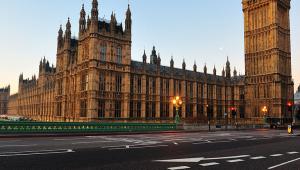The PAC today published its report on the progress made by the Home Office in adopting recommendations the committee made in its last review in 2014.
On the basis of unaudited figures provided by the Home Office, the PAC concluded that only £190m [one tenth] of the £1.9bn confiscation order debt can realistically be collected.
Confiscation orders are the principal way in which the government deprives criminals of the proceeds of crime.
PAC chair Meg Hillier said: “This sends an appalling message to criminals who stand to benefit from crime – and, equally importantly, to their victims and taxpayers.”
Such meagre returns, she said, “do nothing to alleviate public concerns about crime, nor to encourage the perception that justice is being done.”
According to the committee, the Home Office agreed to adopt six recommendations, made by the PAC by 2015.
But the PAC rejected claims from the Home Office that five of the recommendations had been implemented, stating: “It is clear that many of the specific actions proposed… have not been taken.”
In the report, the committee observed that the number of confiscation orders imposed had fallen from an “unsatisfactory 6,392 in 2012-13 to 5,839 in 2015-16. It highlighted that over a hundred times as many offenders were convicted of committing a crime.
The committee warned that a fall in the number of experienced financial investigators was responsible for weakening the enforcement of orders. Meanwhile, “poor information on performance and cost” is hampering informed decisions being made about their use.
The report urges the Home Office to explain why the accumulated confiscation debt is unlikely to be collected, and sets a deadline of the end of September 2016 to set out “how the objectives for confiscation orders should be prioritised and what constitutes success”.
According to Hillier, the current “vague approach to spending public money is unacceptable and must be addressed by the Home Office urgently”.
She added it sent a worrying message to taxpayers, victims and criminals, essentially, “that crime pays”.
A Home Office spokesman said: "The UK government seized over £1.2bn pounds from criminals between April 2010 and March 2016, and hundreds of millions more has been frozen and put beyond the reach of these offenders.
"Since 2013, there has been a 55% increase in the amount collected from confiscation orders. In 2015-16 we collected £206m through confiscation orders - the highest amount to date.
“We have delivered significant reforms to achieve this; establishing new asset confiscation enforcement teams, introducing longer prison sentences for those who don't repay their orders and creating Crown Prosecution Service advisors to tackle criminal proceeds hidden abroad.
“We will consider the recommendations made by the Public Accounts Committee and report back in due course.”




















